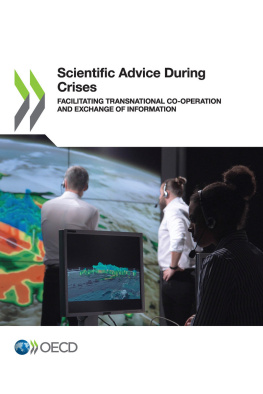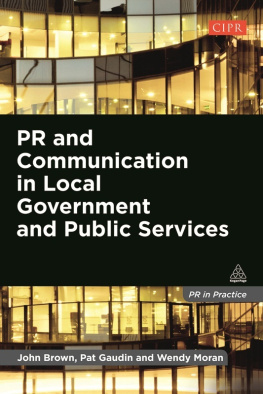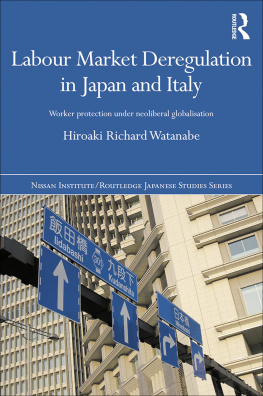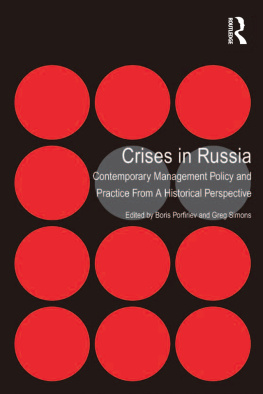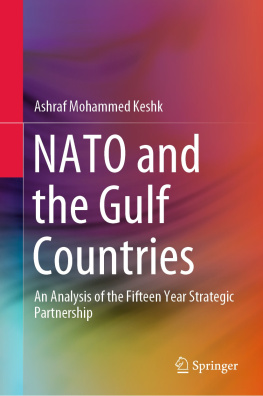coll. - From analysis to action: concluding comments
Here you can read online coll. - From analysis to action: concluding comments full text of the book (entire story) in english for free. Download pdf and epub, get meaning, cover and reviews about this ebook. year: 0, genre: Business. Description of the work, (preface) as well as reviews are available. Best literature library LitArk.com created for fans of good reading and offers a wide selection of genres:
Romance novel
Science fiction
Adventure
Detective
Science
History
Home and family
Prose
Art
Politics
Computer
Non-fiction
Religion
Business
Children
Humor
Choose a favorite category and find really read worthwhile books. Enjoy immersion in the world of imagination, feel the emotions of the characters or learn something new for yourself, make an fascinating discovery.
From analysis to action: concluding comments: summary, description and annotation
We offer to read an annotation, description, summary or preface (depends on what the author of the book "From analysis to action: concluding comments" wrote himself). If you haven't found the necessary information about the book — write in the comments, we will try to find it.
From analysis to action: concluding comments — read online for free the complete book (whole text) full work
Below is the text of the book, divided by pages. System saving the place of the last page read, allows you to conveniently read the book "From analysis to action: concluding comments" online for free, without having to search again every time where you left off. Put a bookmark, and you can go to the page where you finished reading at any time.
Font size:
Interval:
Bookmark:
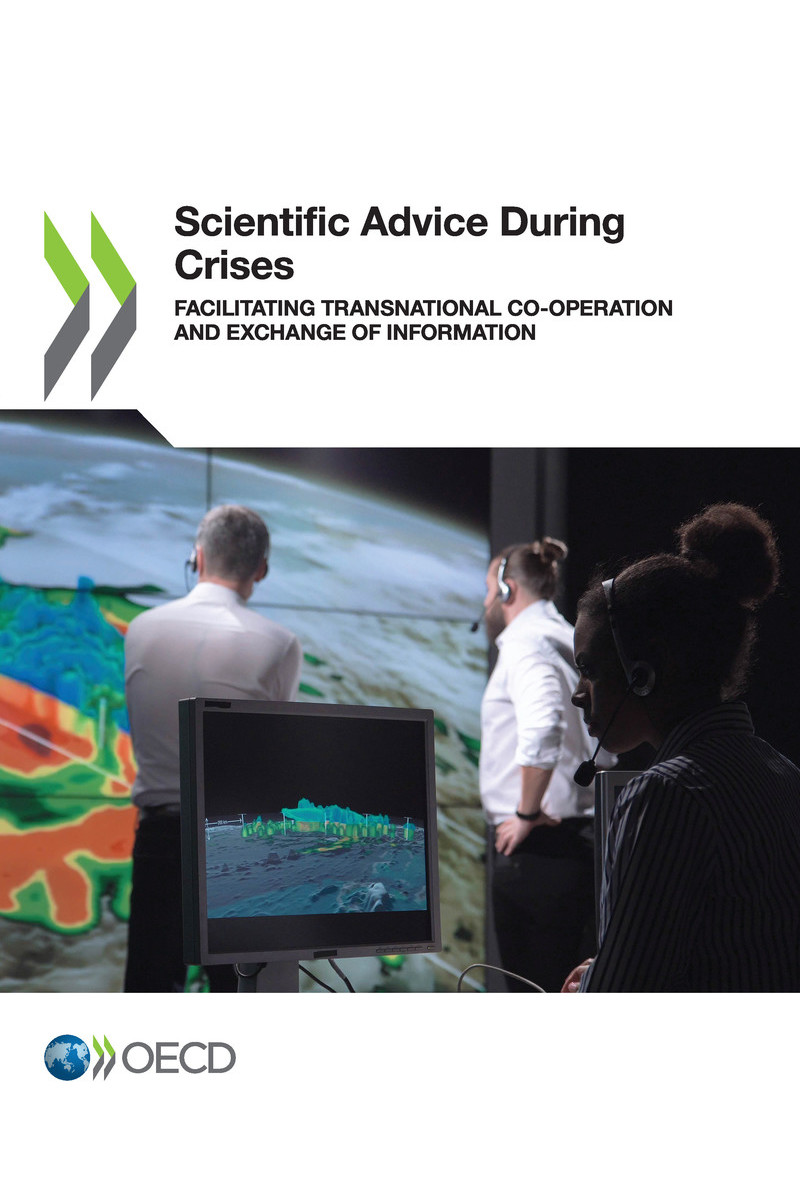
OECD (2018), Scientific Advice During Crises: Facilitating Transnational Co-operation and Exchange of Information , OECD Publishing, Paris.
https://doi.org/10.1787/9789264304413-en
This report focuses on the role of scientific advice in transnational crises. It brings together expertise from both the science and crisis management communities, through the OECD Global Science Forum (GSF) and the OECD High Level Risk Forum (HLRF). It builds on the 2015 GSF report on Scientific Advice for Policy Making: the Role and Responsibility of Expert Bodies and Individual Scientists presented at an OECD science ministerial meeting in Daejeon, Korea, and the 2015 HLRF report on The Changing Face of Strategic Crisis Management , as well as the 2014 OECD recommendation on the Governance of Critical Risks .
The project that forms the basis for the current report was initiated by the GSF in 2016 and has been carried out in close partnership with HLRF. The integration of science policy and crisis management perspectives is a critical aspect of the project. The initial aims were, first, to develop a compendium of national scientific advisory processes as they operate during crises, and, second, to develop a framework for the trans-national exchange of scientific data, information and advice during crises.
The partnership between the Global Science Forum (GSF) experts and the High Level Risk Forum (HLRF) risk managers brought in a welcome focus on ensuring the usefulness and timeliness of scientific advice for those who need to make decisions in crisis situations. In light of the diversity of hazards and threats that crisis managers have to prepare for, the choice was made to focus on two main areas: hydro-meteorological hazards and public health hazards and the response phase of the crisis management cycle.
The report covers a number of key issues for best use of scientific advice in crises, and overcoming barriers for transnational co-operation around scientific advice. It calls for institutionalising the use of scientific advice at national level to support crisis sense-making, complemented by more systematic trans-boundary exchange of information. It also focusses on the importance of building trust between providers and users of scientific advice by developing science networks, organising crisis management exercises involving scientists, and strengthening crisis communication strategies to convey the right messages at times of uncertainty.
The report does not address in depth issues such as public communication and engagement of citizens in scientific advisory processes or privacy and ethical issues related to the exchange of human subject data. These were covered by previous OECD work under the auspices of the GSF and HLRF.
The report draws on a survey of 18 countries and a workshop held at Wilton Park, UK in September 2017. The workshop also generated a separate report, Science advice: international co-operation of data and information during trans-national crises , published in 2017.
This report draws on the expertise and reflects joint cooperation between the OECD Science and Technology Directorate, headed by Andy Wyckoff and the Public Governance Directorate headed by Marcos Bonturi.
The project has been overseen by an international Expert Group whose members were nominated by GSF and included participation by HLRF representatives (see Annex A for membership). This Group was ably chaired by Robin Grimes (UK) and Khotso Mokhele (South Africa) and met twice in person and also had interim virtual meetings via teleconference. The country survey was carried out by Julie Calkins. The Wilton Park workshop was facilitated by Julia Purcell. Eric Stern and Anne Bardsley prepared the space weather scenario for the workshop and the workshop summary report was written by Alessandro Allegra. Alessandro also took the lead in drafting the final project report, with support from Taro Matsubara and Carthage Smith in the OECD GSF Secretariat and Charles Baubion in the HLRF Secretariat. Liv Gaunt and Andrea Uhrhammer in the Public Governance Directorate provided editorial and production support. Additional in kind secretarial support was provided by the UK Government Office for Science and the Wilton Park workshop was generously supported by a consortium of UK governmental and academic sponsors.
Novel crisis : A crisis which cannot be predicted based on the past experience and traditional approach, including unexpectedly large-scale or geographic distribution of traditional crises. Unpredictability can cause a lack of preparedness among key stakeholders. (Baubion, 2013)
Complex crisis : A crisis which includes different types of crises (natural, technological and humanitarian) which requires inter-sectional and inter-disciplinary approaches and expertise to respond to at the same time. It can cause significant physical, economic and social impacts in the globally interconnected world.
Times of calm : Times when a country is not at crisis.
Sense making : A crisis management capacity that aims to understand the nature of an emerging crisis situation, its magnitude and impacts, its potential to evolve, the core societal values under threat and to clarify any associated uncertainties.
Scientific advice : The provision of advice from scientific experts to key stakeholders such as policy makers, crisis managers and the public, based on their scientific evidence and expertise. The process can include collecting and analysing evidence, providing advice, and communicating with key stakeholders in appropriate and timely manners. (OECD, 2015a)
Crisis management cycle : A cyclic illustration of the multiple-phase process of crisis management, which can include (1) preparedness, (2) response, and (3) recovery.
Font size:
Interval:
Bookmark:
Similar books «From analysis to action: concluding comments»
Look at similar books to From analysis to action: concluding comments. We have selected literature similar in name and meaning in the hope of providing readers with more options to find new, interesting, not yet read works.
Discussion, reviews of the book From analysis to action: concluding comments and just readers' own opinions. Leave your comments, write what you think about the work, its meaning or the main characters. Specify what exactly you liked and what you didn't like, and why you think so.

